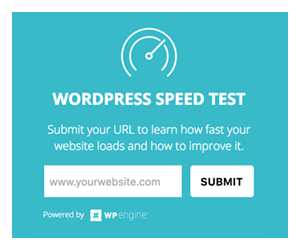Virtual Private Servers
Blog Tag
Shared Servers
Blog Tag
Reviews For Website Hosting
-
20.02.2020
But what about your domain name? You know, the name that people type into their browser to get to your website (e.g. www.yoursite.com)
Can you actually use the same domain name with a different company? More importantly, is it easy to transfer your domain name?
-
-
-
-
Blog Tag
Hosting
-
20.02.2020
But what about your domain name? You know, the name that people type into their browser to get to your website (e.g. www.yoursite.com)
Can you actually use the same domain name with a different company? More importantly, is it easy to transfer your domain name?
-
-
-
-
Blog Tag
Blog Tag
Blog Tag
Reviews and comparisons of the best website hosting.
Guide to choosing the right website hosting for your business.
Shared Hosting Reviews: What You Need to Know
When searching for web hosting companies, you probably saw lots of ads and shared hosting reviews. Web hosting for under $10 a month. Seems too good to be true.
Are these budget-friendly web hosting companies legit? Will they provide the services you need to power a website for your personal or business needs?
It depends.
If you plan on creating a small scale blog or simple website for your business, investing extra money for web hosting could be a waste. Of course, everyone has different needs for their niche on the web. You want to make sure your hosting company offers the reliability and services that bring and keep people at your website.
So can the cost of a fancy latte actually power your website for a month?
Let’s take a closer look.
What is Shared Hosting?
Your website needs a server so other people can view it. This is where the content of your website is stored. When someone types in your web address or discovers it during a search, they are redirected to a server where this information is stored.
Shared hosting, as the name implies, stores information from multiple websites on the same server. Kind of like an apartment, you have many tenants in the same space. This may not be an issue for sites that don’t get much traffic. Bloggers, small businesses, and new websites may do just fine with shared hosting. If you have bigger plans for your website, however, you have to remember you are sharing important resources with other sites.
Consider this: If another website on the same server is using a majority of the resources, your page may experience problems like slow loading times. Think of the last time you waited for a website to load. Did you actually wait?
Some shared web hosting companies have ways to prevent this from happening. But can you expect this from “bargain” web hosting companies? Do you want to risk losing potential viewers while you website struggles to load?
Just one of many things to consider.
What About Hidden Costs?
Let’s face it: About every “amazing” deal has a hidden cost. You find a sofa for a bargain price. Unfortunately, the delivery cost more than makes up for the savings. That dream car may seem in your budget until you get hit with taxes, docking fees, and additional features.
As with everything, you need to read the fine print. This is especially true with budget hosting plans.
First of all, those low monthly rates usually only last until you renew your subscription. After that, your monthly web hosting costs may double or triple.
Depending on the needs of your website, you may have to purchase extras to ensure you get all the services you need.
For example, budget plans may limit the amount of storage you can use. This might not be an issue for smaller websites. If you are incorporating large files–say long videos–that storage could quickly dwindle. You may have to upgrade your plan to get unlimited storage.
For eCommerce websites or just about any website that wants to rank in the search engines, you will need a Secure Sockets Layer (SSL) certificate. This certificate encrypts data being transmitted and authenticates the identity of your website. Some plans include this service free–at least for the first year. After that, however, you may need to pay around $80 annually depending on who is issuing the certificate.
Website backup, email accounts, and even technical support may need to be purchased as extras.
And Then…The Upselling
Once you are lured into the budget friendly web hosting site, you will probably notice a few other plans with more features you may or may not need. Of course, the cheapest shared hosting plan is rarely highlighted as the best value. Usually it is something that costs more than $5 a month.
Should you shell out the extra money upfront? Not necessarily. Web hosting companies will be glad to upgrade your plan whenever you feel the need to spend some more cash on your website.
If you want to start small and add services as your website grows, upgrading is usually very easy. After all, why would the web hosting companies make it hard for you to spend extra money on their services?
Shared Hosting Reviews: The Bottom Line
How do you find the best shared web hosting? Here are a couple tips:
- Read what real people are saying about the web hosting service from reputable websites.
- Make a list of “must-haves” for your website. If possible, find a web hosting company that includes them in their plans.
- Read the fine print. See what will actually cost you extra.
- Don’t worry about upsells unless you know you need them.
With a little time and effort, you can find an affordable web hosting plan without any surprising costs.
Where to start? Reviews for Web Hosting highlights trusted web hosting services and gives you valuable tips and information for creating your website.
Reviews and comparisons of the best website hosting.
Guide to choosing the right website hosting for your business.
Choosing A Web Hosting Service: What You Should Know
You’ve decided to create a website to pass along valuable information, promote your business, or make some extra money. One of the most important decisions is choosing the right web hosting service.
Why?
If you blindly choose a web hosting service without asking a few very important questions, you may be stuck with a service that won’t fit your needs. While transferring to a different service isn’t exactly impossible, it’s time that is better spent on running your business.
Save yourself some headaches and do a little research upfront. The success of your future website will thank you.
Must Read: InMotion Web Hosting Review
Web Hosting Basics
Before we talk a little shop, let’s make sure you know the basics.
In a nutshell, a web hosting service makes your website’s content available on the internet. Websites are stored on special computers known as servers. When people type your website’s name into their browsers, their computer connects to the server containing your webpage. This allows them to view the webpage.
Got it? Good, let’s move on…Here are some questions you will want to ask when researching web hosting services.
How do I plan to use my website?
Someone starting a blog about an obscure subject will have different needs than a person getting ready to sell “the next big thing”.
Make sure the web hosting company has the services to reach your website’s goals. Many hosting companies offer clusters of services to fit a website’s unique purpose. Of course, you need to know what you want to achieve out of your website before you know what services you may need.
How reliable is the server?
Your website is pretty much useless when a server goes down. Bad network connections and weak servers can drive people away from your website and affect your sales.
An unreliable server isn’t just an issue when it is down. A website that has too much downtime may affect your rankings with search engines like Google. This means that when someone is searching for a product or service you offer, people may not even see your website in the first couple pages of search results.
Look for a server with uptime (times website are live) scores of 99.5 percent and above.
How easy is it to access customer service?
If this is your first website, you may need a little help along the way. Web hosting services with 24/7 live customer service either through chat or the phone can be very helpful during those tense moments when you aren’t sure what to do next.
Look for web servers with in-house customer support. They can answer your questions and concerns more efficiently compared to outsourced customer service.
Is the web hosting service user-friendly?
Having access to customer service is great. Being able to create and maintain your website with an easy-to-understand control panel can make you feel more confident when you’re creating the website you dreamt about.
Of course, determining user-friendliness can be difficult. You can read lots of reviews, but it can become pretty overwhelming. After all, people from all different backgrounds and technical experiences create websites. Some spend more time putting out negative reviews than actually researching if the website is right for them.
So what can you do?
Narrow down your choices and see if they offer a trial period. If the web hosting service seems to be working for you, give it a try. You may need to try a couple before finding the one that truly resonates with you. In the long run, the time you spend with a couple of trial periods can save you a great deal of frustration over time.
What’s the true cost after the trial period?
Some web hosting companies lure you with a super-low rate for hosting. When it’s time to renew, they may charge up to triple the initial cost for hosting.
Do you really want to be surprised like that?
Read the fine print. Determine if the renewal rate is within your budget.
Starting a Website is Exciting
Of course, there is a steep learning curve that goes with it. These few questions are a great start for finding a web hosting service that fits your needs. While it’s not an all-inclusive list of questions, it can help you weed out some of the potential services that won’t work for you.
Make sure you read web hosting reviews and check out our resource library to answer more of your web hosting questions.

Blog Category
Web Hosting
Here are some questions you will want to ask when researching web hosting services.
-
20.02.2020
But what about your domain name? You know, the name that people type into their browser to get to your website (e.g. www.yoursite.com)
Can you actually use the same domain name with a different company? More importantly, is it easy to transfer your domain name?
-
-
-
-
In a nutshell, a web hosting service makes your website’s content available on the internet. Websites are stored on special computers known as servers. When people type your website’s name into their browsers, their computer connects to the server containing your webpage. This allows them to view the webpage.




